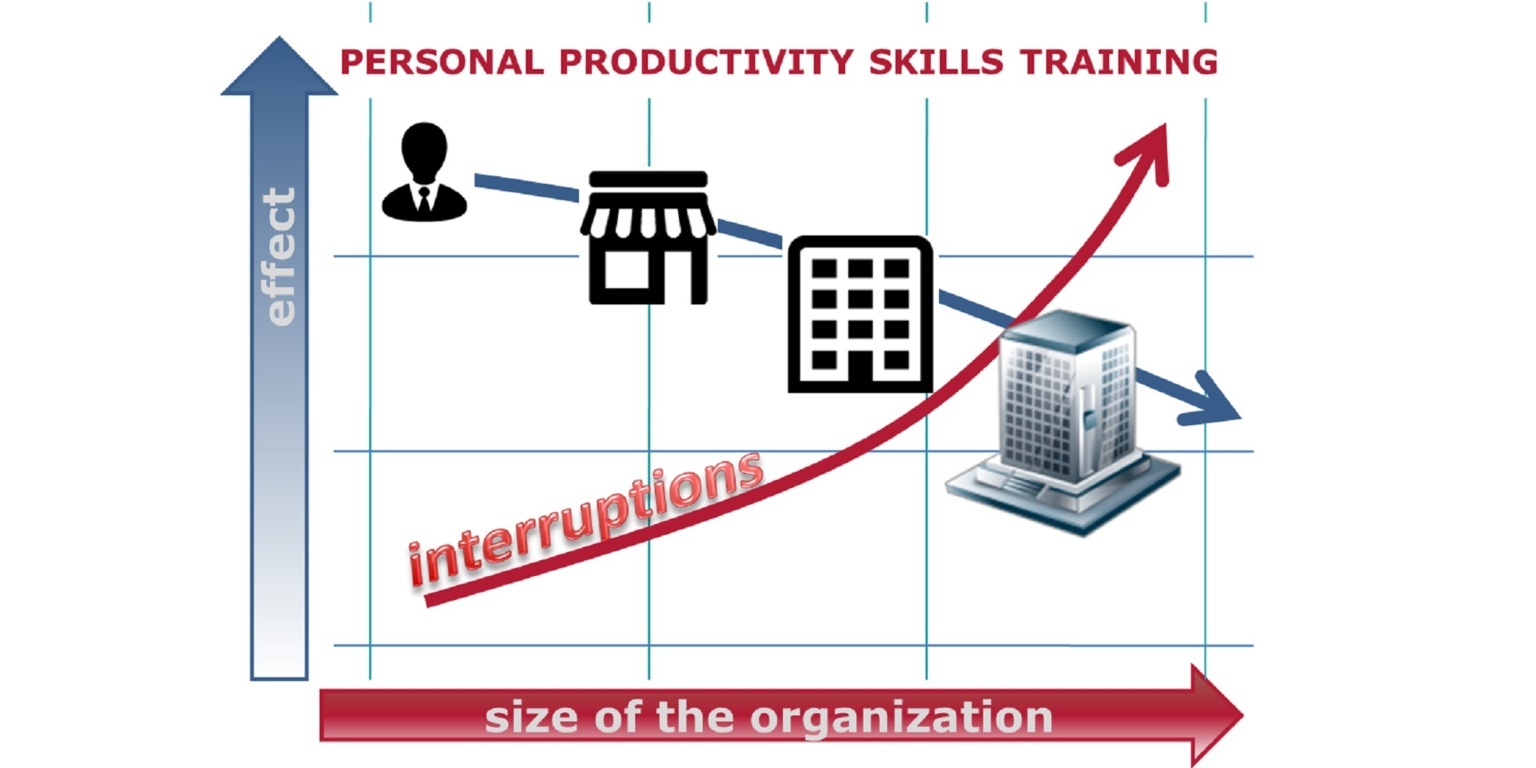Personal productivity skills training in large organizations
Personal productivity skills training in large organizations is a very interesting subject which provides a number of lessons. At the end of 2014, I have been fortunate to help many middle management officers and managers improve their self-organization. They came from different firms, sectors and locations.
One of these firms -enterprise size- belongs to a very competitive sector and there is a widespread concern about time value. Every minute counts. Clients are used to their demand results daily and the pressure is high.
Just the act of finding a time window for any of the sessions we were supposed to have was in itself a triumph. Some of the attendees, despite probable conflict with their Human Resource Department, declined participation (even on the first day), after having previously confirmed it.
Whenever I face one of these workshops, I repeat to myself: What can I do to capture their attention? Which contents, games, videos, music, exercises… should I make to really focus their attention on getting as much value as possible from those intense and magical hours? Now I know it is not a show business matter. Beginning one of these meetings with a high volume “Welcome to the jungle” (Guns’n’Roses) helps transmit that maybe it is not going to be a tedious and uninspiring program. But with no continuity, real commitment to change is difficult to achieve.
And here is where size matters. In my experience, a good training on personal productivity techniques and methods, produces the strongest impact on small enterprises.
Why?
Because…
Usually small business people attend this kind of training by personal choice and not upon a recommendation. They really see a connection between those contents and real changes into their quality of life and their outturn.
When the whole or a very important part of the organization (leading by its top management levels) gets involved, a new understanding of collaborative dynamics rises.
And what about middle or big firms?
Even more convinced people, those you see heavily involved in solving their Evernote or Nozbe practice… sooner or later express their doubts about their environment. They simply think that no change is going to be possible because of their boss or clients behavior:
Because he sends you emails at 7 pm with tasks to be accomplished next morning
Because it does not matter if I try to timebox the first fresh and rich hour in the morning. THAT particular customer has already become accustomed to calling me almost every morning… at 7:30!
Because after agreeing on a particular plan for the week, my boss is the first one to go back on it. He simply offers himself for the everchanging and inconsistent orders from his own superiors.
Because, without prior notice, an agenda or timetable, she just takes us to a meeting room to waste everyone’s time. And once again, real work will have to be done after hours.
Toxicity
These characters… the toxic boss, the disrespectful partner, the defiant customer,… are real cancers for an organization’s productivity. Evasive skills must be developed to avoid them. Good pedagogical explanations must be prepared.
Are there not any of these people in small business? Of course there are. They are everywhere. But maybe –just maybe-, these behaviors are frequently and more openly fought in a more fragile environment. Why? Because bad results and a strained atmosphere are lethal to the company’s survival. How far can you go with a disorganized, stressed and discouraged team?
So… does this mean there is no solution for big enterprises?
Is it worthwhile to teach their managers these skills? Are they actually going to be able to make the changes needed in their lives?
Too right! At least some people realize there is a problem and now they know where it is and how to address it. At least there is one direction they can look at for trying to improve things: top-down. He can start by changing a bunch of micro-interruptions from his collaborators into small timeboxed meetings, or implementing a collaborative working environment for debates. Or even by enabling a repo for reference stuff, or creating trust by means of a regularly processed inbox, where things do not get blocked and everybody’s tasks flow.
Of course, when these companies seriously face this issue and make an effort for training many of their workers, a cultural effect begins to spread like an oil stain. It becomes easier to generate understanding of your new improved self-organization. They will realize it’s not a good idea to be continuously exposed to distractors such as instant messaging or continuous email access.
What started out as a simple two day workshop now finds continuity. Someday, during a coffee break, someone may comment the best way to implement the “Waiting-for list”. Your commitment to change now finds a breeding ground to success.
Photo: Rafa Garcia ©2014

